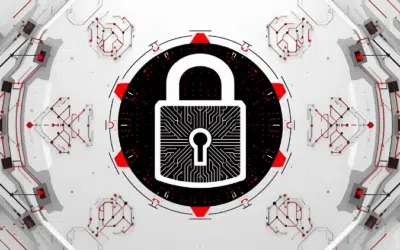Professional services firms across the Dallas-Fort Worth area face a growing number of cybersecurity threats. Firms in legal, accounting, and consulting roles handle sensitive data daily, making them attractive targets for cybercriminals. Protecting that information is critical to keeping client trust and avoiding possible legal issues.
Most firms already use basic security measures like firewalls and antivirus software, but those are no longer enough. Threats have evolved, and many attackers rely on tactics that exploit people, not just systems. Phishing emails, fake invoices, and compromised credentials are more common than ever—and often successful.
Improving cybersecurity readiness means building a layered defense that includes both technology and user awareness. Firms need structured processes that address risk without disrupting productivity.
Cybersecurity threats specific to professional services
Firms in this sector store and transmit large amounts of confidential information. That includes legal documents, financial reports, client records, and strategic plans. A breach can expose sensitive data and lead to lawsuits, compliance violations, and long-term damage to reputation.
Common threats include phishing emails that appear to be from trusted contacts, ransomware attacks that encrypt key files, and business email compromise (BEC) schemes that trick staff into sending money or confidential data. These attacks often succeed precisely because they look like emails and messages that are innocuous.
Professional services firms are especially vulnerable because they rely heavily on email communication and remote collaboration. Without strong policies and user training, these everyday tools can become weak points. The key is not just to stop threats but to detect and respond to them quickly when they occur.
Building a security-first culture inside the firm
Training employees to recognize threats
One of the top causes of security breaches and incidents for professional services firms? Human error.
Employees may click on malicious links, use weak passwords, or store sensitive data in unprotected locations. Training programs help reduce these risks by teaching people how to spot suspicious activity and respond appropriately.
Effective training is ongoing, not a one-time event. It should include examples of real threats, explain how to report issues, and reinforce policies in a practical way. If team members and employees understand why different security policies exist and how attacks happen, they’re more likely to follow best practices.
Simulated phishing tests, brief refresher sessions, and clear communication about expectations all contribute to a stronger security culture. Every employee plays a role in cybersecurity, and firms benefit when that responsibility is shared across the organization.
Implementing practical security policies
Written policies are essential, but they need to be clear and enforceable. Key policies should address device use, password management, remote access, email handling, and data storage. These guidelines help standardize behavior and set expectations for how work is done.
Policies should also include a comprehensive incident response plan. Knowing what to do—and who is responsible—when something goes wrong can prevent a small issue from becoming a major crisis. A good response plan outlines steps to take after a breach, including communication, containment, and recovery actions.
Updating these policies regularly is important. As technology and threats evolve, firms must review their procedures to stay current. Involving staff in the process helps build buy-in and keeps policies relevant to day-to-day work.
Reinforcing habits with secure tools
Technology plays a supporting role in building habits. Tools that promote good behavior—like password managers, multi-factor authentication (MFA), and automatic backups—make it easier for employees to follow security protocols without thinking twice.
Secure collaboration platforms with built-in encryption reduce the risk of sharing sensitive files over unsecured channels. Web filters and endpoint detection tools add another layer of defense that operates quietly in the background. When paired with clear usage guidelines and appropriate training, these tools are even more effective.
Firms should also audit how tools are being used. A security policy is only effective if it’s followed. Regular audits help identify where practices are slipping and give leaders the chance to correct course before a small oversight becomes a problem.
Compliance and regulatory requirements
Many professional services firms operate under specific industry standards and legal obligations. These requirements vary depending on the type of service provided, but all include some level of responsibility for data security and privacy.
Law firms must often meet state bar guidelines that govern client confidentiality. Accounting firms may be subject to IRS data protection rules and must follow financial reporting standards. Consultants who handle customer data may need to comply with vendor contracts or sector-specific regulations.
Staying compliant involves more than just installing software. It requires documented procedures, ongoing monitoring, and the ability to demonstrate that security controls are in place. Regular audits, access logs, and backup records help firms prove that they take their responsibilities seriously.
Building a sustainable cybersecurity program
Strong cybersecurity is not a one-time project. It requires ongoing vigilance that involves planning, maintenance, and adaptation. Professional services firms should aim to create a security program that evolves with the business and keeps pace with changing threats.
Start by identifying the most critical data and systems, then build controls around them. Layered defenses that include firewalls, encryption, access control, and monitoring are more effective than any single tool. Regular testing, user feedback, and performance reviews keep the system relevant and effective.
Firms that prioritize cybersecurity gain a competitive edge. Clients increasingly ask about security protocols before engaging new vendors. A well-managed security program builds trust and protects the firm’s reputation, even in the event of an attempted attack.
A practical next step for your firm
Professional services firms in North Texas do not need to overhaul their entire IT infrastructure overnight. Cybersecurity maturity happens in stages, and the most important step is taking action. Identify what’s working, where gaps exist, and where additional expertise may be needed.
If your firm is unsure where to begin, start with an internal review of policies and procedures. Identify which users have access to sensitive data, check if your backups are running correctly, and confirm that your software is up to date. These small actions reduce risk and create momentum.
When you’re ready to take the next step, Axxys can help. We’ve supported local firms with assessments, policy development, training, and technical implementation. Our goal is to help you build a security strategy that supports your business—not one that slows it down. Reach out today to schedule a no-obligation security readiness conversation with our team.








